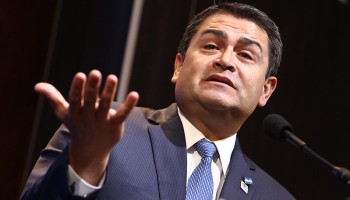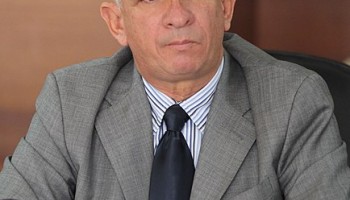U.S. prosecutors believe that the son of a former far-right Turkish lawmaker orchestrated a complex scheme that allowed ships to evade U.S. sanctions and smuggle Venezuelan oil. They say that in exchange for these services, he and his associates were paid tens of millions of dollars by the Venezuelan oil and gas company.
According to U.S. Department of Justice documents, Taskin Torlak and his associates employed a sophisticated network of strategies, including deactivating tracking systems, altering vessel names and flags, and fabricating shipping documents, to circumvent international controls and transport Venezuelan crude oil.
“The scheme included obfuscating the identities of tankers moving the oil by renaming and reflagging vessels, covering vessel names with paint or blankets, and turning off the electronics that track vessels’ locations for the safety of ships and their crews,” a DOJ statement said.
Torlak was detained last week in Miami as he attempted to flee the U.S. He now faces charges for exploiting the U.S. banking system to transfer funds linked to these illicit transactions and allegedly violating restrictions enforced by the Office of Foreign Assets Control (OFAC).
U.S. Attorney Matthew Graves for the District of Columbia stated that Torlak and his associates “planned to sell Venezuelan oil illegally while hiding its source.”
The investigation revealed that Venezuela’s state-owned oil and natural gas company, PdVSA, was paying Torlak to facilitate the shipment of their oil. In a letter dated June 29, 2023, Torlak and his associates complained about the lack of payment from the Venezuelan company. “Of the outstanding amount of USD 57,797,325.88, we have received to date only approximately 32.5 M$, as indicated in the Statement of Account dated 29.06.2023,” their letter allegedly said.
In 2019, the U.S. sanctioned PDVSA, to prevent it from accessing U.S. markets and businesses. Following a temporary suspension in 2023, the sanctions were reinstated in 2024. Venezuelan President Nicolás Maduro condemned the move as “illegal” and “immoral.”
Shortly after the initial sanctions were imposed, Torlak encouraged a Ukrainian associate to establish a fleet of "clean" ships—vessels that had never traded with sanctioned entities like PDVSA—to transport crude oil.
One of the vessels central to the investigation is the tanker M/T Mirame (IMO 9227948). On November 3, 2020, Torlak advised his partner that special care was needed to prevent information leaks, noting that 3,850 tons of oil were scheduled for delivery from Venezuela to Singapore. He recommended omitting the vessels' actual names from documents and spent approximately $1,700 to deregister the Mirame’s previous flag and another $1,400 to register a new one.
The investigation also references the M/T Melissa Amy (IMO 9174397), a ship whose flag change allowed it to be registered in countries with more lenient compliance standards.
Prosecutors believe that Torlak and his associates also deactivated the AIS and LRIT tracking systems on their ships. These systems are typically used for maritime safety but create a digital trail that authorities can track.
Additional strategies involved concealing the ship’s name or altering shipping records to suggest the cargo originated in Asia or Africa rather than Venezuela. The M/T Gracy (IMO 9326720), a vessel connected to the operation and owned by a Vietnamese company, reportedly transported Venezuelan crude under Russian insurance, evading scrutiny from European and American authorities.
Torlak is the son of Ali Torlak, a prominent figure in the shipping industry and a former Turkish lawmaker. Authorities claim that his expertise in freight transportation played a crucial role in evading trade restrictions on PDVSA.






